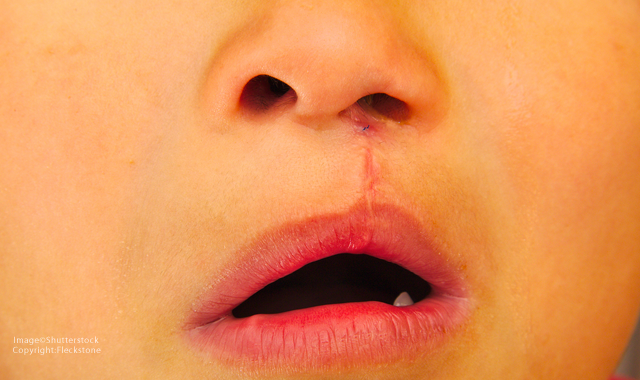Researchers find no link between academic test results and early oral cleft surgery
A new study suggests that poor results on academic exams of children born with oral clefts are not related to early exposure to general anesthesia.

Researchers have often suspected that early exposure to surgery and anesthesia is linked to cognitive impairment later in life. It has been thought that due to the timing of oral cleft surgeries, which are typically performed at an extremely young age, children with an oral cleft often experience cognitive dysfunction and academic underachievement. However, a recent study suggests that poor results on academic exams of children born with oral clefts are not related to early exposure to general anesthesia.
Researchers from the University of Southern Denmark and the University of Iowa recently published a study in the current issue of The Cleft Palate–Craniofacial Journal examining this theory. Because the definite age of maximum vulnerability to general anesthesia is unknown and widely debated, it is unclear whether academic achievement among adolescents is affected by undergoing oral cleft surgery at an early age. The researchers suspected that any potential neurotoxic effect caused by extensive exposure to anesthesia at an early age would show up in poor test results in ninth-grade final exams.
Trending research: Can long-term breastfeeding lead to dental caries?
The researchers based their study on 558 adolescents from a nationwide Danish registry who had undergone surgery for cleft lip, cleft palate, or both while young. The researchers found that 509 of the oral cleft children had been exposed to anesthesia and had undergone at least one cleft operation. They compared the level of academic achievement of the students in the registry against that of a control group.
Although children with a cleft lip, cleft palate, or both are exposed to anesthesia early and often, the researchers found no significant difference for teens with a cleft lip or with both a cleft lip and a cleft palate when they compared their ninth-grade test scores with those of teenagers in the control group. However, students with only a cleft palate did have lower test scores than those of students in the control group. Children with a cleft palate only are generally older when surgery is performed than children with other types of clefts.
“This finding is remarkable,” says Dr. Nicola Clausen of the research group. “Studies like the present one cannot definitely prove that anesthetic drugs do not harm developing brains. However, it can put the potential threats into perspective because other factors more importantly impact these children’s neurocognitive development.”
The researchers concluded that oral cleft type, rather than the timing of anesthesia or number of cleft operations, is linked to poorer academic performance. Although the researchers saw no evidence in their study to suggest surgeons need to change their anesthetic methods, a neurotoxic effect due to anesthetics cannot be completely dismissed.
The full text of the article “Oral Clefts and Academic Performance in Adolescence: The Impact of Anesthesia-Related Neurotoxicity, Timing of Surgery, and Type of Oral Clefts,” The Cleft Palate–Craniofacial Journal, Vol. 54, No. 4, 2017, is now available at http://www.cpcjournal.org/doi/full/10.1597/15-185.
Floss & Flip Flops Episode 14: Children's Dental Health Month with Irene Iancu
February 1st 2023The Sanders Sisters invite Irene Iancu, RDH onto the microphone to discuss Children's Dental Health Month, discussing the importance of prevention, counseling and patient-centered care for our pediatric patient population.
University of Texas Health Science Center San Antonio to Launch Center for Regenerative Sciences
June 17th 2024The center aims to translate preclinical discoveries into therapies for dental and craniofacial diseases, leveraging the school’s expertise in stem cell-based treatments and 3D printing technologies.
America’s ToothFairy Partners with Sun Life and DentaQuest
June 17th 2024America’s ToothFairy, Sun Life, and DentaQuest are raising awareness about oral health disparities and promoting dental careers during Oral Health Month in June, providing free educational resources through the Share Your Smile campaign.